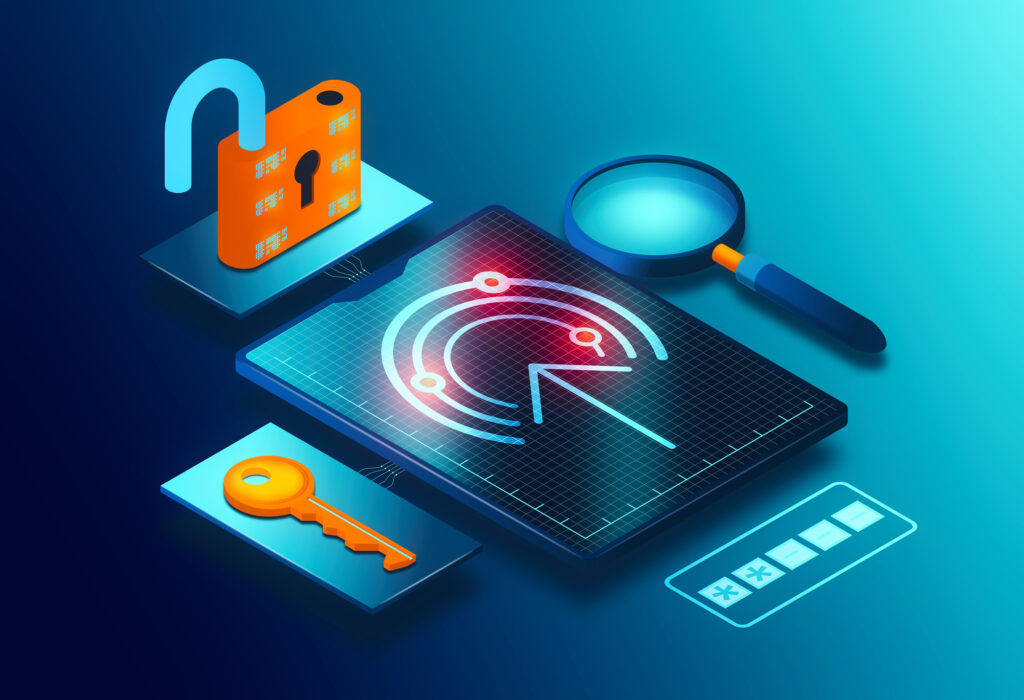In the digital age, data breaches have become a pervasive threat to organizations of all sizes across the globe. These breaches represent a significant risk to the confidentiality, integrity, and availability of sensitive information, ranging from personal data to trade secrets and financial records. Understanding the intricacies of data breaches is crucial for comprehending their implications on cybersecurity and society as a whole. In this deep dive, we’ll explore what data breaches are, why they matter, and delve into in-depth analysis on their importance in today’s interconnected world.
What is a Data Breach?
A data breach occurs when unauthorized individuals gain access to sensitive or confidential information without the consent of the data owner. This breach can happen through various means, including hacking, malware infections, insider threats, or inadvertent disclosures. Once accessed, the compromised data can be used for malicious purposes such as identity theft, financial fraud, espionage, or even sold on the dark web.
Data breaches can involve a wide array of information, including:
- Personal Identifiable Information (PII): This includes data such as names, addresses, social security numbers, and financial account details.
- Protected Health Information (PHI): Health records, medical histories, and other healthcare-related data fall into this category.
- Intellectual Property (IP): Trade secrets, patents, and proprietary information crucial for business operations are targeted in breaches.
- Payment Card Information (PCI): Credit card numbers, expiration dates, and cardholder names are prime targets for cybercriminals seeking financial gain.
- Corporate Data: Confidential business plans, strategies, and internal communications can also be compromised in data breaches.
Why Data Breaches Matter
The ramifications of data breaches extend far beyond the immediate financial losses suffered by organizations. Several key factors underline the importance of understanding and addressing data breaches:
- Privacy Concerns: Data breaches infringe upon individuals’ privacy rights, exposing sensitive personal information to malicious actors. This can lead to identity theft, financial fraud, and reputational damage for the affected individuals.
- Regulatory Compliance: In an increasingly regulated environment, organizations are obligated to protect the privacy and security of the data they collect and process. Breaches can result in severe penalties and fines for non-compliance with regulations such as the General Data Protection Regulation (GDPR) in the European Union or the Health Insurance Portability and Accountability Act (HIPAA) in the United States.
- Reputational Damage: The fallout from a data breach can tarnish an organization’s reputation and erode consumer trust. News of a breach can lead to negative publicity, customer attrition, and diminished brand loyalty, impacting the organization’s bottom line in the long term.
- Financial Losses: Data breaches incur significant financial costs for organizations, including expenses related to forensic investigations, legal fees, regulatory fines, and potential lawsuits. Moreover, there may be costs associated with remediation efforts, such as enhancing cybersecurity measures and providing identity theft protection services to affected individuals.
- Operational Disruption: Recovering from a data breach can disrupt normal business operations, leading to downtime, productivity losses, and resource allocation towards incident response and recovery efforts. This can hinder an organization’s ability to deliver products and services effectively, affecting its competitive advantage in the market.
- National Security Implications: In cases where sensitive government or military data is compromised, data breaches can pose a threat to national security. The theft of classified information or intelligence can have far-reaching consequences, including diplomatic tensions, espionage, and even cyber warfare between nations.
In-Depth Analysis of Data Breach Importance
To grasp the significance of data breaches fully, it’s essential to delve into several critical aspects:
- Economic Impact: Data breaches impose substantial economic costs on both businesses and society as a whole. According to a study by IBM Security and the Ponemon Institute, the average cost of a data breach in 2021 was $4.24 million globally. This figure includes direct costs such as legal fees and technical investigations, as well as indirect costs like reputational damage and lost business opportunities. The ripple effects of data breaches can reverberate throughout the economy, affecting industries, supply chains, and consumer confidence.
- Cybersecurity Maturity: The frequency and severity of data breaches serve as a litmus test for an organization’s cybersecurity posture. High-profile breaches often expose vulnerabilities in organizations’ defense mechanisms, highlighting the need for continuous improvement and investment in cybersecurity infrastructure. By analyzing the root causes of breaches and implementing robust security controls, organizations can bolster their resilience against future cyber threats.
- Legal and Regulatory Landscape: Data breaches have catalyzed the evolution of data protection laws and regulations worldwide. Legislators and regulatory bodies are enacting stringent measures to hold organizations accountable for safeguarding personal and sensitive data. For instance, the GDPR introduced stringent requirements for data protection, including mandatory breach notifications and substantial fines for non-compliance. Similarly, the California Consumer Privacy Act (CCPA) grants consumers greater control over their personal information and imposes penalties for data breaches resulting from negligence or non-compliance.
- Emerging Threat Landscape: As technology advances and cybercriminals adopt increasingly sophisticated tactics, the threat landscape continues to evolve. Data breaches are no longer perpetrated solely by lone hackers; they often involve organized cybercrime syndicates, state-sponsored actors, or insider threats with malicious intent. Moreover, emerging technologies such as the Internet of Things (IoT), cloud computing, and artificial intelligence present new attack vectors and challenges for cybersecurity professionals. Staying ahead of these threats requires a proactive approach to threat intelligence, vulnerability management, and incident response.
- Cross-Sector Implications: Data breaches transcend industry boundaries, affecting organizations across sectors such as healthcare, finance, retail, and government. While the motivations behind breaches may vary—ranging from financial gain to espionage—the impact is universally felt. Collaboration and information sharing among industry peers, government agencies, and cybersecurity experts are essential for combating cyber threats effectively and mitigating the risk of future breaches.
Conclusion
In conclusion, data breaches represent a pervasive and multifaceted threat to organizations and individuals alike. Understanding the underlying causes, implications, and broader context surrounding data breaches is essential for developing effective cybersecurity strategies and mitigating risks. By prioritizing data protection, investing in cybersecurity measures, and fostering a culture of resilience, organizations can minimize the impact of data breaches and safeguard the integrity of sensitive information in an increasingly interconnected world.












